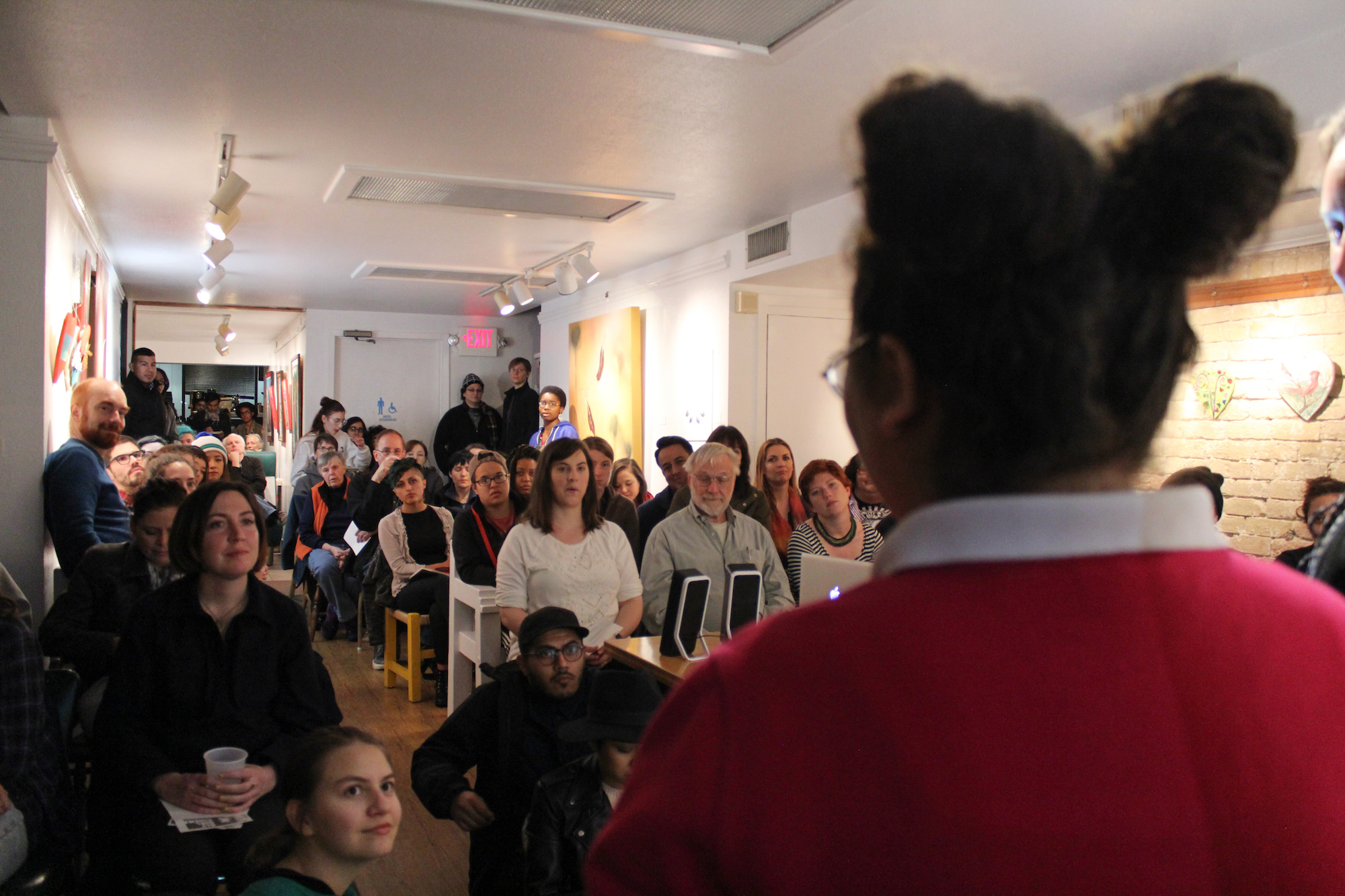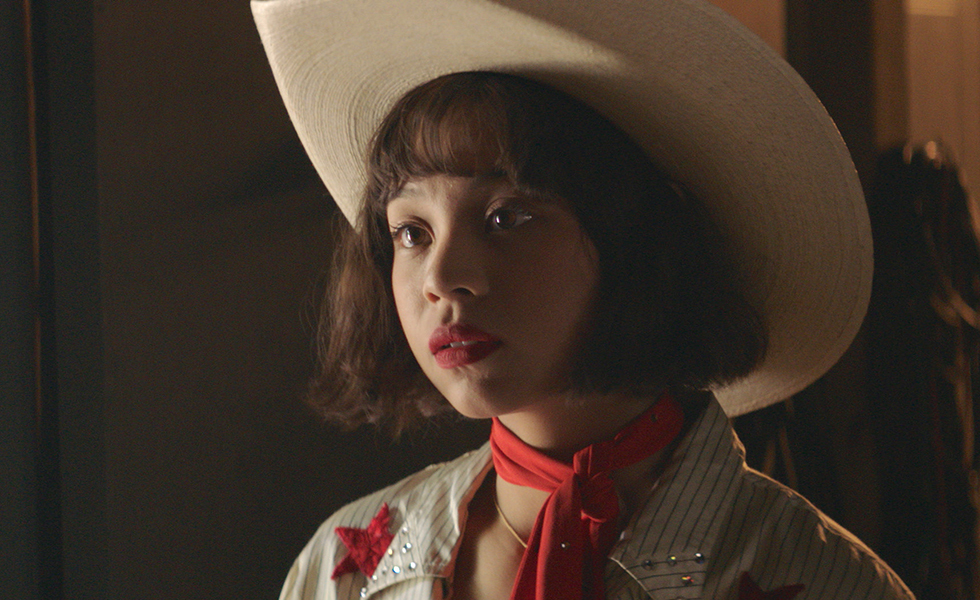
Oscars May Be #SoWhite, but Austin’s Alt Girl Cinema Isn’t

In 1939, Hattie McDaniel was the first African American to win an Academy Award for her role as Mammy in Gone with the Wind. Almost 80 years later, she is still one of the Oscars’ very few winners or nominees of color, prompting the #OscarsSoWhite social media campaign to generate discussion about race and privilege in Hollywood.
But while change may be slow to come for the film industry elite, a group of Texans are already working to address this lack of representation through woman-centered film events that recognize and celebrate diverse talent.
Saturday evening, dozens of film enthusiasts filled La Peña, a community space for emerging artists in downtown Austin, for the third screening of the Alt Girl Cinema series. Hosted by the Women’s Community Center of Central Texas, the donation-based events showcase an alternative to big-budget, white-washed Hollywood movies and generate funding support for women filmmakers.
Alt Girl co-organizer Andrea Zarate told the Observer that the series gives women of color a platform to promote their ideas — an opportunity they may not receive through mainstream media.
“Every year, people have different speeches when they win [an Oscar] — grand statements about we need more this or that, but it never happens,” Zarate said. “I feel like community screenings are an alternative. Not that the Oscars shouldn’t change, they should. But sometimes it’s good to focus on local support and representation.”
Alt Girl Cinema began as a monthly film screening focused on social justice documentaries and dramas. “We had been showing a lot of serious movies. It’s good that women are doing social justice filmmaking, but it’s not all that women do. Women can be in horror film or experimental films, so that’s why we started Alt Girl Cinema,” she said.
Saturday’s screening centered on experimental films by women of color.
“Experimental [film] is generally seen as a white-society type thing, or avant-garde is seen as a European kind of thing. But women of color have been telling stories in different and nonlinear ways for a long time,” Zarate said. “That’s why it’s important to show their work. They’re coming from a different place that’s even more experimental, just because of their life experiences.”
Filmmaker Marcela Moran was on hand to screen her film Jornaleras. The experimental documentary examines the stories of three Central American immigrant women in the United States and the struggles they faced during their journey.
The film’s title is derived from the Spanish la jornada, meaning a day’s work, Moran explained to the audience during a post-screening Q&A. While the term’s derivative, jornaleros, is typically associated with male day-laborers, Moran made a slight change to reflect women who sacrifice their families and lives to work in the United States. The title is also a nod to Moran’s all-women film crew.
Moran, who became deeply invested in immigration issues after returning to her hometown of Laredo, discussed what she hopes viewers take from the film.
“I think my part is just raising awareness — trying to get people to think about immigration in a different way,” Moran said. “[Immigrants] are willing to leave their children behind because that’s the way they’re trying to survive. We don’t see that in the news, we just hear about building walls and deporting people.”
Other shorts screened during the event include Me Broni Ba (My White Baby), an exploration of hair braiding in Ghana and the influence of colonialism, and Kusama’s Self-Obliteration, an experimental and psychedelic art film.
“That’s why these kind of events are important,” Moran said. “It’s not the Oscars, it’s not the Toronto Film Festival, but we’re still getting the word out, we’re still showcasing and being vocal. It has to start somewhere.”


